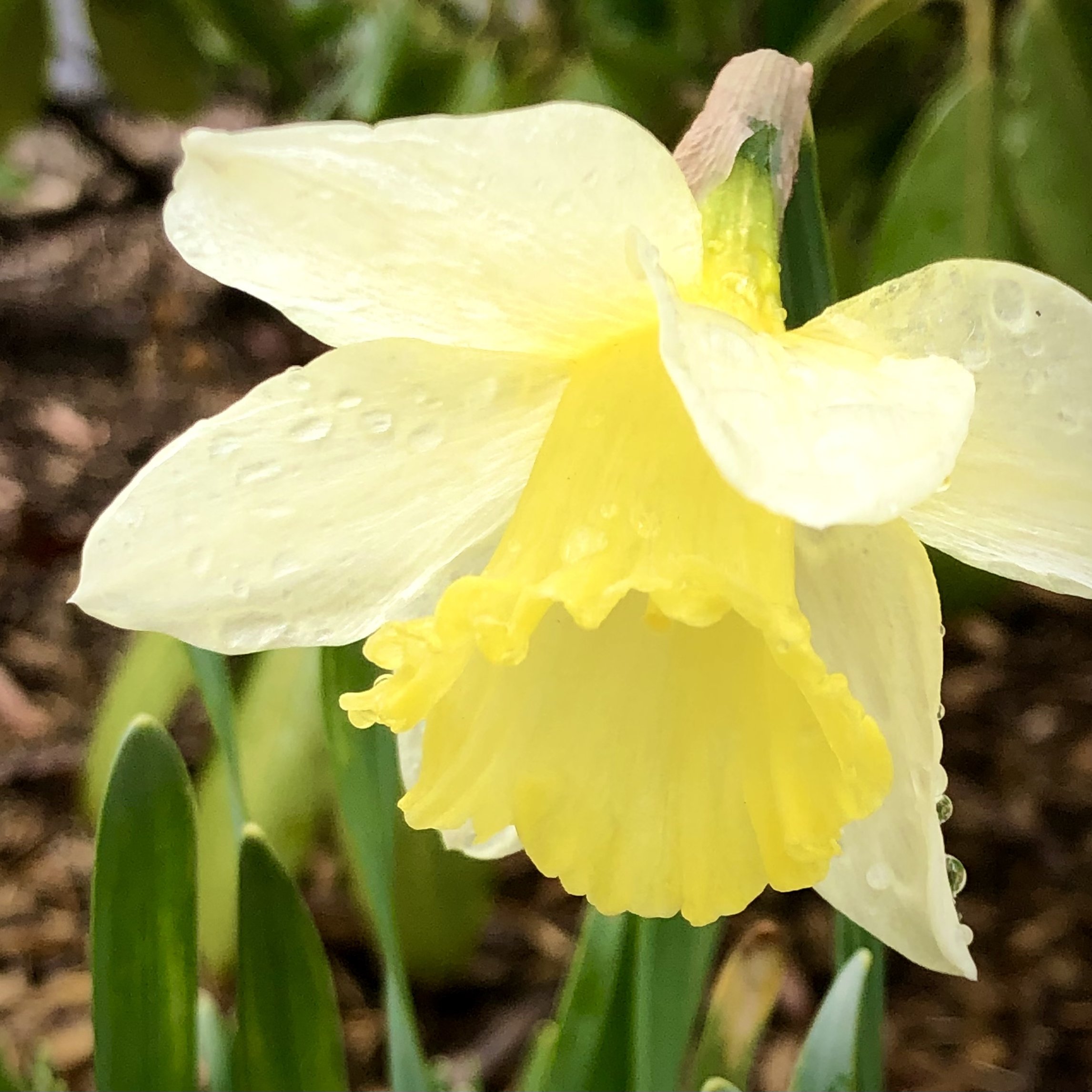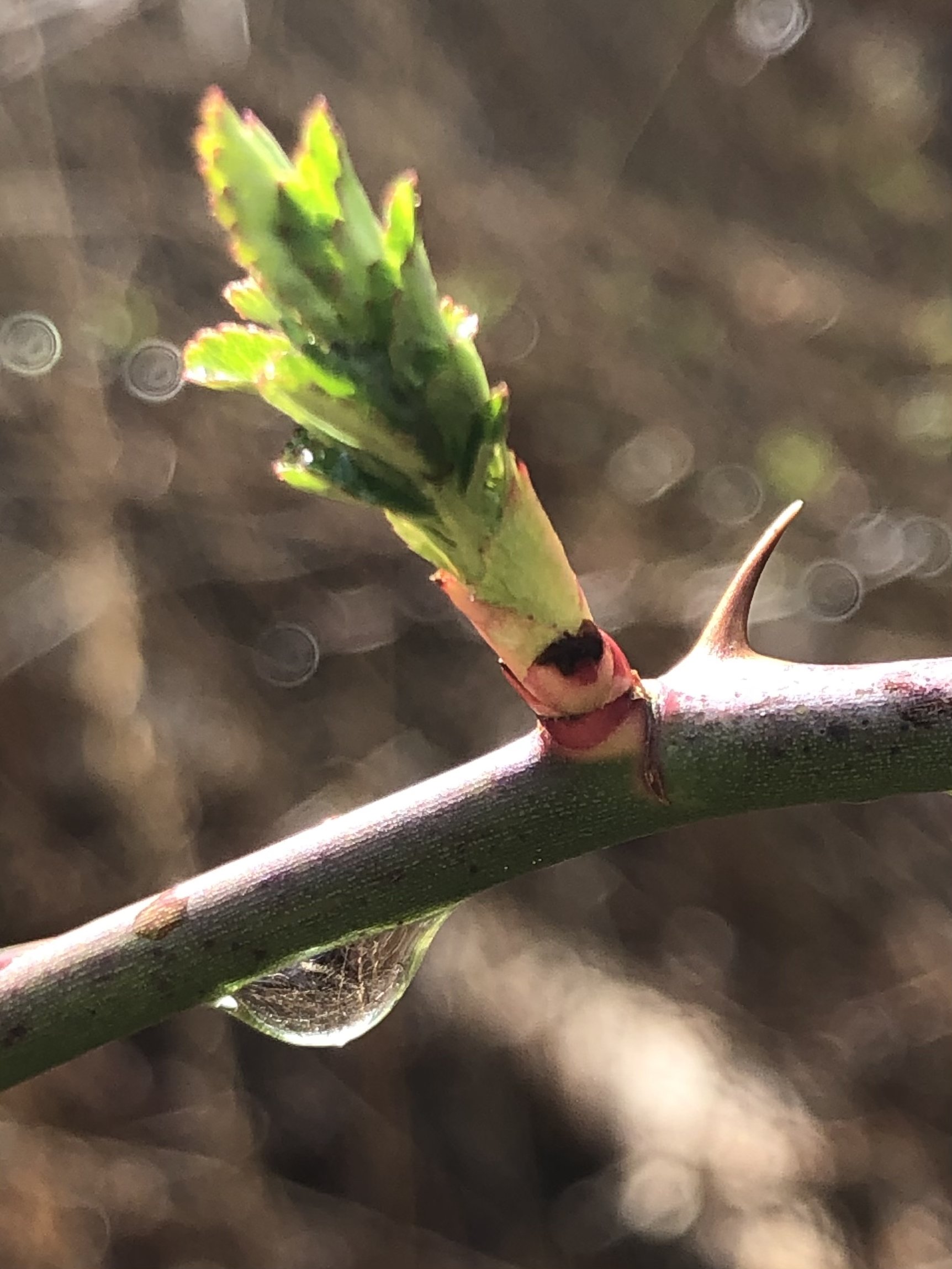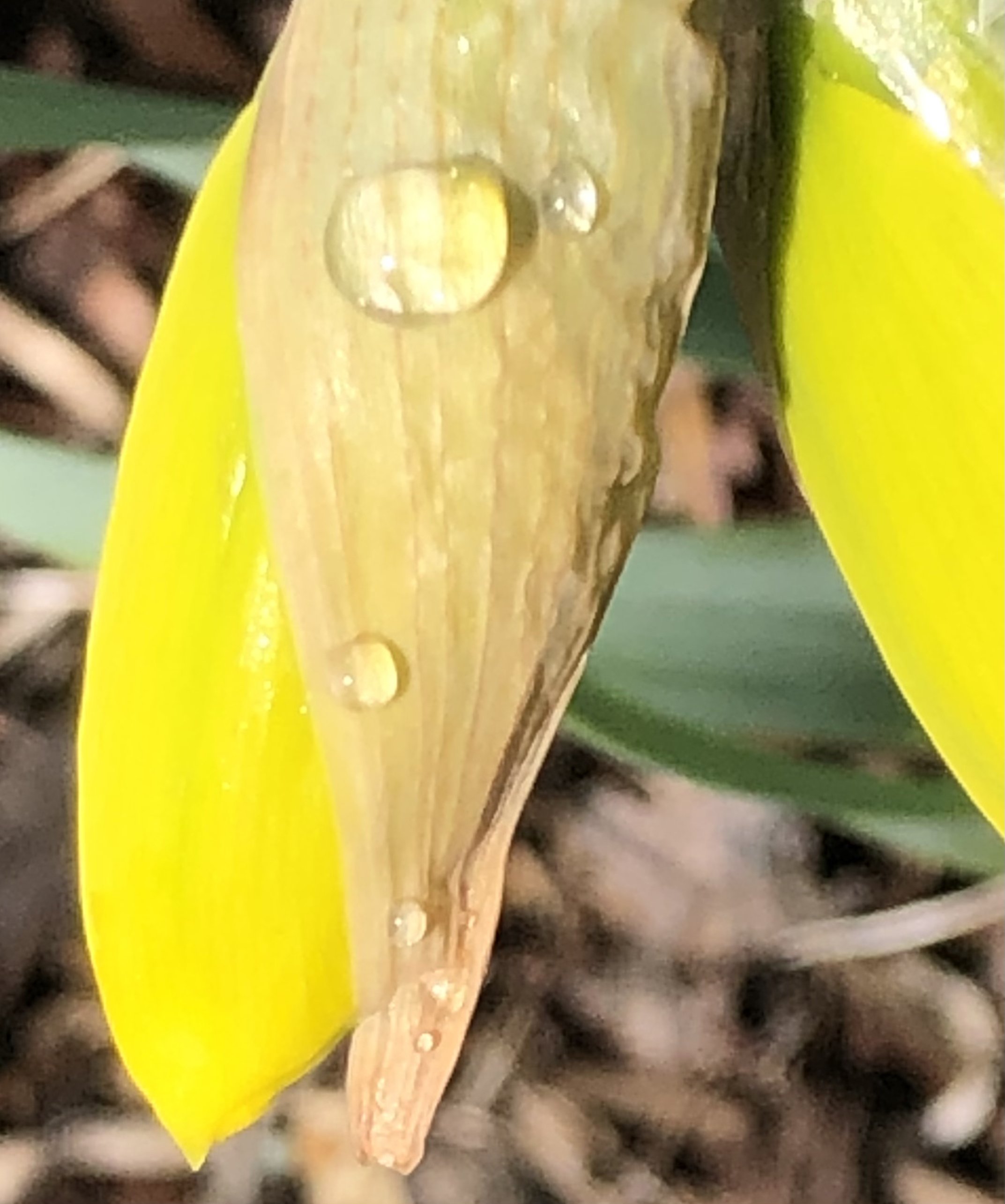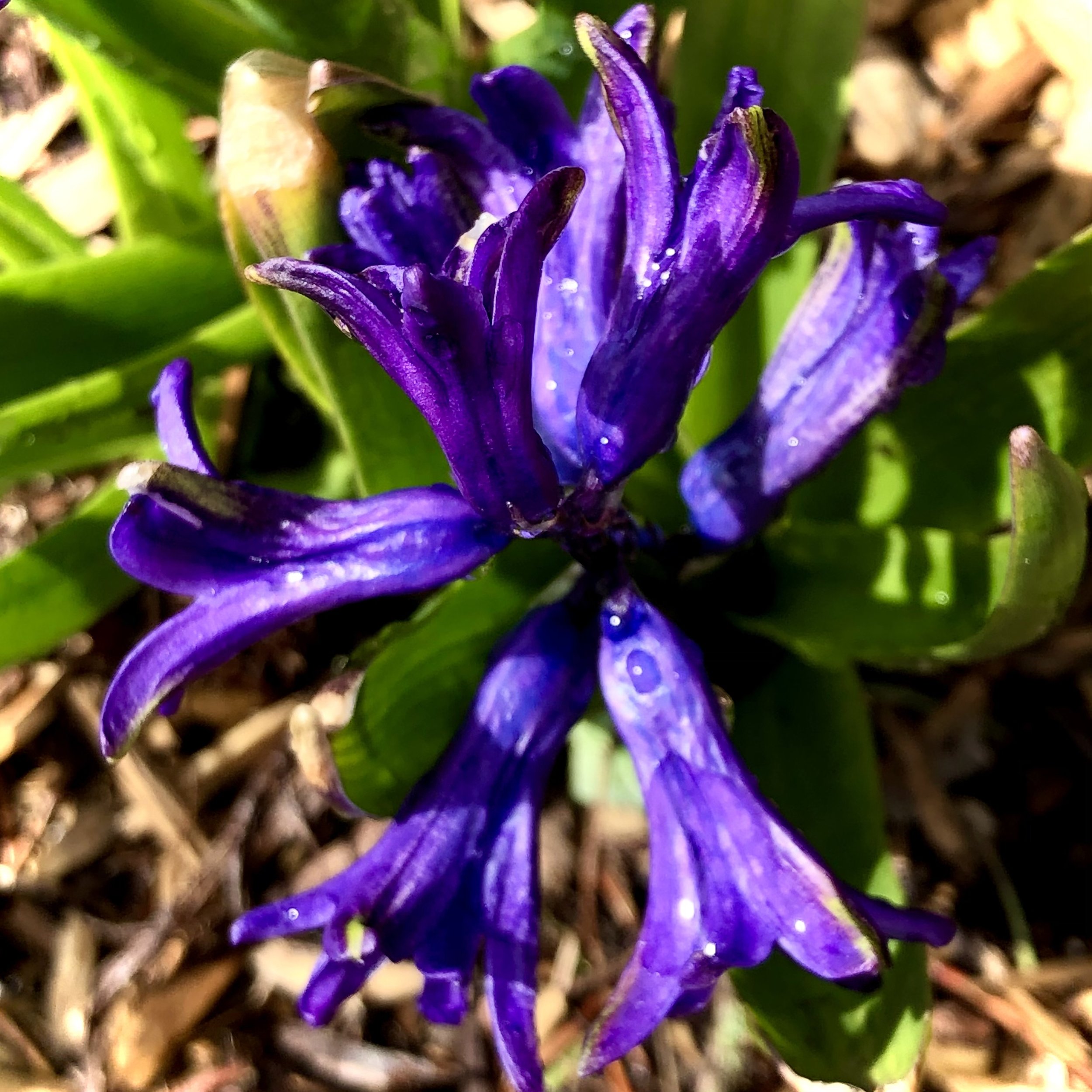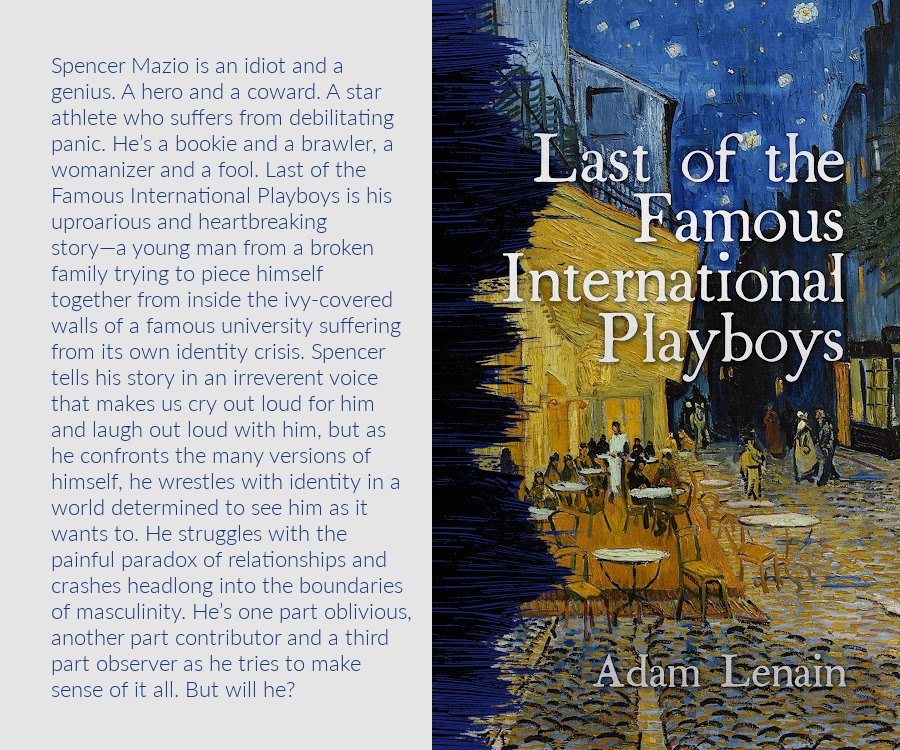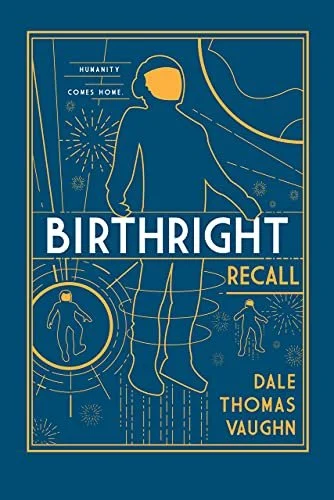Horizons far and near
That final trip to Far Horizons, which afterward (for reasons more emotional than financial) slipped forever out of reach, was marked, or maybe marred—if the lack of something can make a mark—by absence. Not just my father’s physical absence but the absence of all the things we’d done with him.
I probably ate banana pancakes at a dimpled glass, metal-rimmed table by the long pool ringed with red pavers, but they didn’t taste the same (like the ginger ale in the hospital waiting room on the day he’d left us), even with extra whipped cream. I might have played shuffleboard on the adjacent courts, slipping the discs listlessly along the concrete, uninterested in where they landed, and I don’t remember who with, as my board had been shuffled in a way I had not yet begun to fully fathom. We did not make our traditional drive to The Buccaneer restaurant, where just over the little arched bridge a jaunty, costumed pirate stood guard over a huge toy chest, offering an “Ahoy” and a toy to each excited and delighted child. Nor the longer journey to The Moors, a seafood shack that may have been on stilts, with better food but lacking the Buccaneer’s festive atmosphere. There was no trip to the Ringling Circus Museum, or St. Armand’s Circle on nearby Lido Key (we were on Longboat), where my father always purchased at least one print or painting from the Lebwohl gallery and my mother shopped for summer clothing and anything we’d forgotten, while I spent the day bored, hanging in the afternoon heat on her skirt hem, waiting patiently for the dreaded excursion to end. There was, however, a shell store on St. Armand’s, and I would always marvel, in the blissful cool of the air conditioning, at the perfect specimens of olives, conchs, augers, and coquinas, and other shells whose names I once knew from long beach walks with my shell-obsessed mother and the little book that she—with her poor eyes—had me consult for her after we laid our finds out on the kitchen counter in our cottage. And there were no backgammon games with my father, who would unclasp and flip open the black leather briefcase that expanded into a board and teach me strategy, as he had already done with chess.
There was, still, dinner in the resort’s elegant and excellent dining room, but on our first night there, the effusive, suave, Desi Arnaz-look-alike Maître d’, Jesus (pronounced ‘Hey Seuss’), whose name I surely didn’t realize was Jesus, noticed my father’s absence and inquired, “And where is Mr. Fiffer?” “He’s no longer with us,” my mother said somberly, and like my then best friend, Roger, who crumpled into my mother’s arms at my father’s funeral, or the audience that cried with me when I told the story of my father’s last day on earth, Jesus placed a slender, brown, manicured hand on the white tablecloth to steady himself as he started sobbing. This fresh and powerful expression of grief no doubt inflamed my still gaping wound, and yet I recall only the immensity of his sadness in that moment instead of my own. I had already cried, unlike my middle brother, Jim, who after flying back from Yale, where he was a senior, and arriving at my uncle’s house where we were all gathered in shock and disbelief—my uncle sitting in the green chaise in the corner of their shag-carpeted sunroom with windows facing the pool and the enormous console television set I later learned had been my (other) grandmother’s, shaking his head, repeating over and over, “I can’t believe it, I just can’t believe it” (who could?)—my brother, who, as he took my uncle’s place on the chaise broke into tears and heard me ask, with all the naive insensitivity of a nine-year-old, “Why are you crying?” and said, ignoring my ignorance, “Because I couldn’t cry on the plane.”
It occurs to me now, somewhat cynically perhaps, that Jesus’s reaction may have been due, in some part, to my father’s legendary and well-deserved reputation as the last of the big tippers (and spenders). But I have no doubt that the weeping man, who had served me kiddie cocktails for the past five years, felt the loss much more deeply in his heart than in his pocket.
When tragedy strikes, your horizon shifts. A horror that, if you ever thought about it (like the sun no longer coming up), seemed millions of years away and impossible to ever actually encounter, is suddenly right there, and not just close up, in your face, but on top of you and moving through you, crushing and gutting you as it utterly overtakes you. Your world has turned, not on schedule in its mundane, diurnal circle, but upside down and sideways, thrown off its axis and careering off course, wobbling through space and time as it enters uncharted stretches of universe, where the word diurnal splits into die and urn, where every word having anything to do with death or even sounding like it suddenly stings, where a previously unremarkable commercial for a car or a refrigerator or a bar of soap with a dad in it induces instant, uncontrollable emotional upheaval—an ever-expanding universe of loss closing in on you, where the laws of physics break down not at the unimaginable extremes but in the unimagined and now unavoidable center, and you come to understand, as you struggle each day to lift your head just high enough to regain your bearings, to spot a North Star, or any star, in the endless darkness, the infinite gravity of grief.
At the same time, your universe bursts open, the black void suddenly clustered with a stellar association (a real term in astronomy) of well-meaning people, friends of the family, friends of friends, bodies who were always orbiting but now cast their living light on your death-occasioned darkness and through their stories and memories and words of comfort and consolation manage to preserve your father’s flame even though his once brightly burning star has been extinguished. The solace you receive restores your sense of gravity, not as a crushing force but a healthy pressure that keeps things—especially your grief—in their place. It firms up your falling firmament and reminds you, as you float through each day’s depressing dirge of re-realization, that there is still music to be heard—albeit a requiem—in the spheres.
On the plane ride to Far Horizons that year, the empty seat next to my mother and me (the seat that would have been my father’s) was occupied by a young boy, perhaps 10 or 11, traveling to Orlando by himself. His name was Carmi, short for Carmine, and he was scared of flying and also extremely nervous and fidgety, even more so than I. My mother gave him gum for the pressure, tissues for his runny nose, root beer or butterscotch or Pep-o-mint Lifesavers—from her endless store—and assured him that the plane was not going to crash-land in the Everglades or the Okefenokee Swamp. Neither the absence of my father nor his death could have possibly come up, for if it had, I doubt that Carmi could have remained so unselfconsciously self-absorbed. He took immense pride in making the flight by himself (his grandparents would be meeting him in Orlando, where we were probably changing planes for a puddle jump to Tampa or Bradenton), and he insisted that when we disembarked, we act as if we had never met him. While we waited dutifully for the aisle to clear, he scampered off the plane ahead of us, without a goodbye or even a thank you, and as we caught up with him approaching grandma and grandpa (a retired mobster, for sure), I instinctively started to say, “Hi Carmi” but managed to suppress his name before it left my lips. The resulting “Hi,” accompanied by a half-wave like the half-hand-raise one makes as a student unsure of the answer, drew an odd look from his grandparents, but I was confident it had stayed within the probability of a forward kid (which I was not) saying hi to another. Now that I think about it, those grandparents surely knew he’d sought assistance on the flight, just as my father knew I had lied to him about the drill.
My father’s absence from Far Horizons that final year also caused my mother and me to spend some time with a family we knew from home who were vacationing at the same time at the next resort down the beach, The Colony, to which I could walk (and had to walk as my mother hadn’t rented a car). I played, as happily as I could, with their son Carl (about my age) and his little brother, Jon, on their beach and swam in their pool. For a few hours each day, I almost forgot my problems. I felt, in an uncomfortable yet comfortable way, part of their family, even though I barely knew them. Sitting at dinner with an intact and as yet undamaged clan, I was both unaware (consciously) and aware (subconsciously) of the extent of my deprivation. Why else would I have chosen, despite my mother’s oft-administered admonishment to order frugally as a guest, the surf and turf special, more expensive by half than anything else on the menu? If an apology for my lack of manners was made, I surely didn’t make it, as I abhorred phone calls and would rather have died of shame than suffered the embarrassment of dialing their number.
My mother’s solo status also meant that when she went out to dinner with Anita, a long-time family friend, I was left alone in our little cottage on the beach—at least I remember feeling desperately and terrifyingly alone, though in all likelihood there was a sitter. As the evening progressed I panicked. I suppose it was a panic attack, though no one would have called it that then. Interestingly, the term first surfaced in mental health circles that very year, 1975, and made its way into the DSM in 1980. I began calling, or had the sitter call, Anita’s apartment repeatedly, only to have the phone ring endlessly, since unbeknownst to me, the two of them were at a restaurant. My vision narrowed and my palms and forehead poured sweat as I pictured my mother dying in a gruesome car crash with a cackling, curly-haired, sharp-faced Anita hovering over the wheel. I already felt responsible for my father’s death (a lie my mother helped me unravel), fearing that my dirty fingernails (something he hated) might have caused his heart to stop or that if I had just pushed my way out of the Mersa-deez sooner and gotten to my aunt and uncle’s door faster when I frantically screamed, “Aunt Ruthie, Uncle Buddy, come quick, something’s happened,” then repeated my mother’s mysterious words, “Call the inhalator!”, that if I had just not been so slow and careless the paramedics just might have saved him. How I could be responsible for Anita carelessly killing my mother I wasn’t sure, but I knew it had to be my fault, perhaps for allowing my mother to go out that night (though I didn’t have a choice) or for not chopping down the tree into which Anita’s car slammed at full speed. Either way, the carelessness of losing both parents, as opposed to the mere misfortune of losing one (Oscar Wilde, The Importance of Being Earnest), was surely all mine. I had always worried too much about things that didn’t happen, but this time I hadn’t worried enough. The sense of relief when my mother returned safely was like the soothing sound of the ocean caressing the sand just a few feet from our cottage door, or the marvel of the sun coming up over the horizon, piercing the dawn darkness with its promise of daylight. It took a long time for me to forgive her.
After the trip, there were other markers: my first fatherless birthday in April, my father’s birthdayless birthday that October (when we first began donating books to our local library in his memory), Hanukkah (we lit the candles, my mother never smoked again) and Christmas, and of course, the first anniversary of my father’s death. That February 9th, and on each one after as long as she remained our neighbor, my friend Roger’s buxom, beehive blonde, bombshell mother, Judie, left a single red rose on my mother’s doorstep. I continued the tradition, eventually transitioning to simple bouquets or tabletop rose bushes when Hlavacek Florist stopped offering the option of sending a single flower. “Fifteen years,” my mother would say when she called to thank me. “Twenty years.” Followed by 25, 30, 35, and finally 40. After that, she didn’t say it anymore. She couldn’t. Because she, too, had slipped over the horizon—the far one and the near one—into the great beyond.


